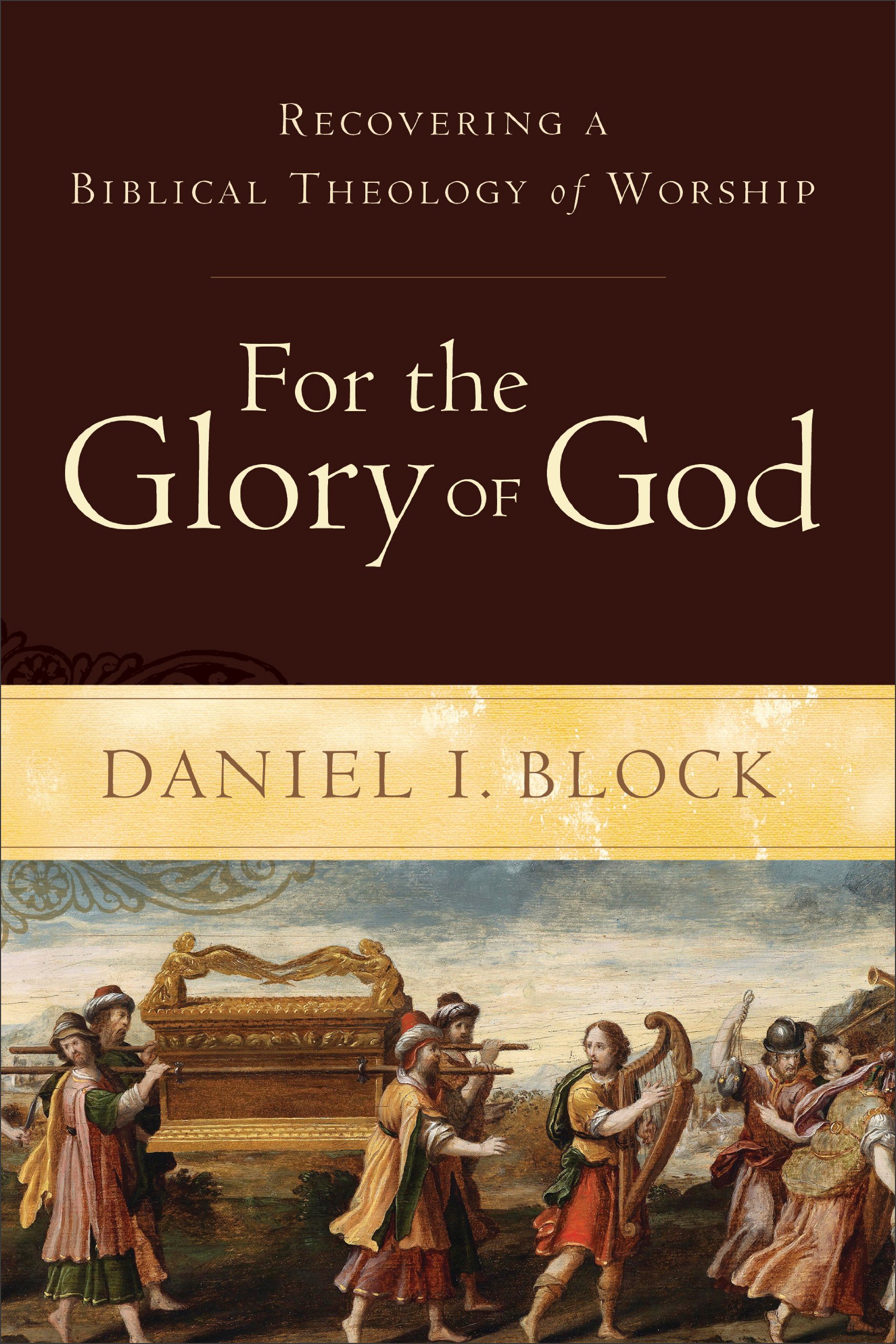Today we continue a very informative interview with Dr. Daniel Block regarding his excellent new book, For the Glory of God: Recovering a Biblical Theology of Worship. If you missed Part 1 of this interview yesterday, you can catch up here.
Books At a Glance:
There has been considerable discussion in some circles about the appropriateness of the word “worship” in describing our corporate church gatherings. Can you address this for us?
Block:
 If we want to talk about “worship” that is biblical we should not begin our discussions with the English word. In the end it is irrelevant what the English word means. What matters is how the scriptures speak about the matter. And we must go beyond semantics — that is, the meaning of words. As noted above, the Hebrew and Greek words rendered “worship” have a very limited semantic range. True worship obviously involves more than physical prostration; it involves a disposition (trusting awe [yārēʾ]), one’s total life devoted to God, and private and corporate formal expressions of worship. We must caution against compartmentalizing worship as those activities we do in church or in our formal devotional times.
If we want to talk about “worship” that is biblical we should not begin our discussions with the English word. In the end it is irrelevant what the English word means. What matters is how the scriptures speak about the matter. And we must go beyond semantics — that is, the meaning of words. As noted above, the Hebrew and Greek words rendered “worship” have a very limited semantic range. True worship obviously involves more than physical prostration; it involves a disposition (trusting awe [yārēʾ]), one’s total life devoted to God, and private and corporate formal expressions of worship. We must caution against compartmentalizing worship as those activities we do in church or in our formal devotional times.
Books At a Glance:
Let’s take a touchy subject, always of interest: What is the biblical role of music in corporate worship – and this perhaps in contrast to the role it is given in today’s corporate worship?
Block:
This is a touchy subject only because we have grossly inflated and exaggerated views of the place of music in worship. While tabernacle worship probably involved music — beyond the blowing of the shofar calling people to worship — it is striking and humbling to observe that the Scriptures never speak of the musical aspect of tabernacle worship. And we need to recognize how modest is the role of music in New Testament worship. In our exaggeration of the place of music in contemporary corporate worship we have forgotten that the Psalter is primarily a prayer book, rather than a song book. Ministers of music should not be called “worship ministers.” This obscures the nature and function of worship as an audience with God. What he says to us is generally more important than what we have to say to him (Ecclesiastes 5:1–7; Psalm 95). I am not against music in worship; [both my wife and I come from very musical families]; I am against an inordinate focus on music, and if we will have music I am against music that is theologically vacuous and that celebrates the disposition of the worshiper, rather than the grace and glory of God.
Books At a Glance:
Can we take another sensitive step? As you observe churches today in the corporate gatherings, what trends concerns you most? And are there encouraging trends also?
Block:
As I have already intimated, the pragmatism of the “worship industry” concerns me. Since our understanding of worship is restricted largely to what we do in church as a community, we devote our energies to making our worship that is attractive especially to the unbelievers and the marginal Christians. We forget that an audience with God calls for a counter-cultural liturgical vocabulary. In Deuteronomy 12 Moses declares that the forms of true worship may not derive either from our own imaginations (v. 8) or the environment in which we live (vv. 29–31). The object of worship alone (i.e., God) determines the nature and forms of true worship.
I am greatly encouraged by the openness of young people to my conclusions regarding worship. Students in my classes regularly express their conviction that something is wrong with the worship practised in many of the churches in which they grew up. Older people tend to think it is the music; when introduced to the Scriptures young people quickly grasp that the problem is an absence of a biblical theology of worship.
Books At a Glance:
What audience are you aiming at in this book? And how or in what kinds of settings do you hope to see it used?
Block:
With its 380 pages and extensive footnotes this looks like a weighty and technical seminary textbook or reference book for “professional worshipers.” However, the structure, style, and format have been deliberately designed to reach a much broader audience. My undergraduate students have found pre-published manuscripts very readable. In fact we have deliberately divided the book into thirteen chapters so that it can be used in quarterly Bible studies (at home or in Sunday School), as well as in undergraduate and graduate semester courses. I am delighted to hear that many church staffs are working through the book together, discussing one chapter each week.
My aim was to get lay people discussing worship; the subject should not be the preserve of the professionals. Just as Moses wanted the general citizenry of Israel to have a theological understanding of kingship (Deut 17:14-20), so our laypeople need to have a theology of worship, so they may encourage their leaders in appropriate directions. And when leaders get it wrong, the lay people should be aware of it.
“God is most glorified
and his people most transformed
when they worship him,
not according to the whims of a fallen human interpreter,
but in response to his revelation of himself
and in accordance with his will.”

